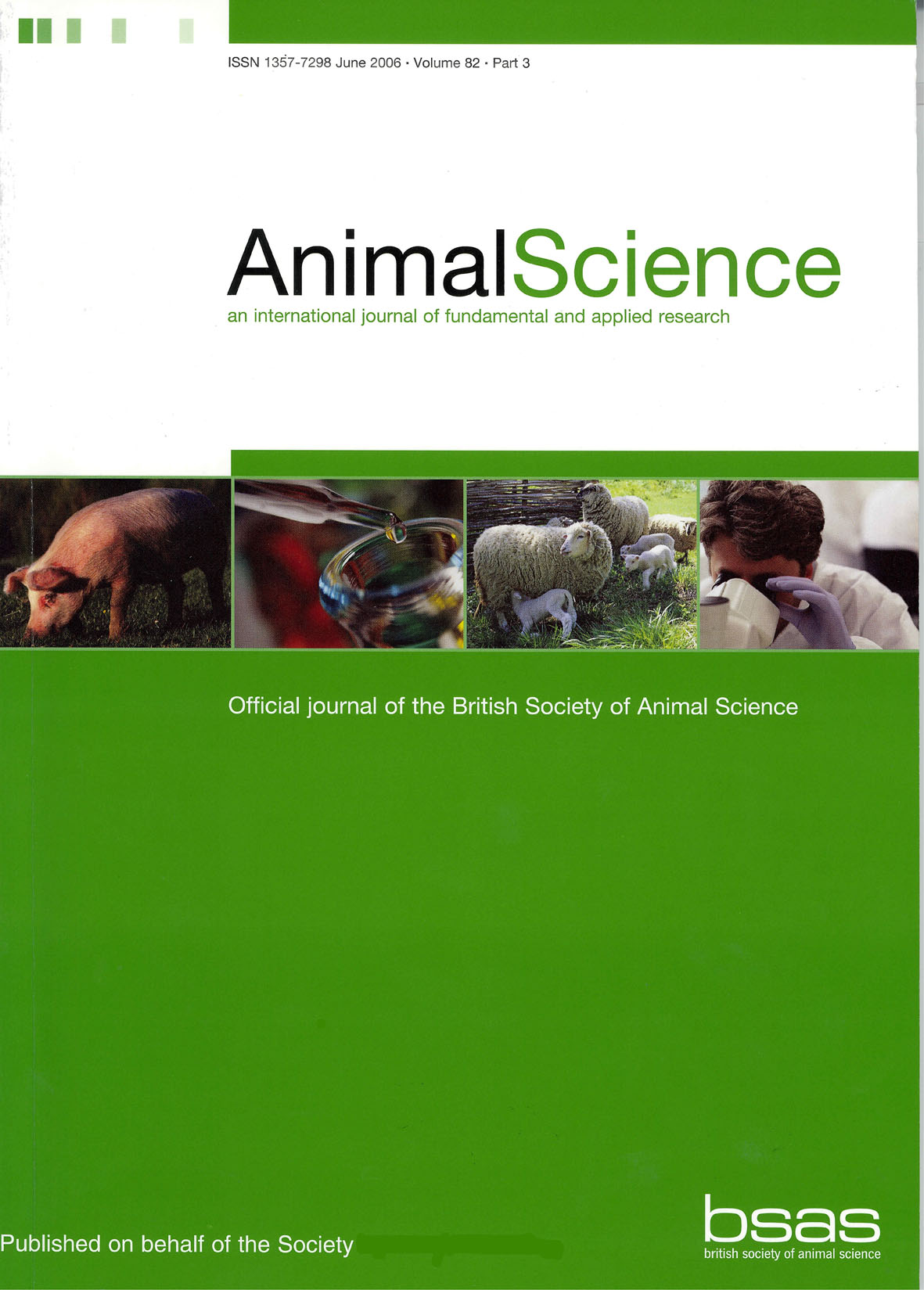Article contents
The effect of immunocastration 7 weeks before slaughter on the behaviour, growth and meat quality of post-pubertal bulls
Published online by Cambridge University Press: 18 August 2016
Abstract
Active immunization against gonadotropin-releasing hormone (GnRH), commonly known as immunocastration, has been proposed as an alternative to traditional methods of castrating bulls. This study evaluated the effects of immunocastration on growth, behaviour and meat quality of post-pubertal bulls. Bulls were either vaccinated against GnRH (no. = 30, I) or left intact (no. = 30, B). A third treatment consisted of steers (no. = 20, S) that had been castrated pre-pubertally. The animals were run in eight single treatment groups (no. = 10 per group), three of each of В and I and two groups of S. Anti-GnRH antibodies developed and plasma testosterone concentrations declined in I following immunization. Aggressive behaviour of I declined to be lower (P < 0·5) than B and no different from S, 5 weeks after primary immunization. Seven weeks after immunocastration all animals were slaughtered. The hot carcass weight of I was between that of B and S but not significantly different from either. There were no effects of treatment on pHu or meat colour measurements. Taste panel assessment rated I higher than B, but lower than S for tenderness, juiciness and overall palatability. These results demonstrate that immunocastration of post-pubertal bulls 7 weeks before slaughter is a potential means of reducing problematic bull behaviour and improving meat quality although this is likely to be at the cost of reduced weight gain.
- Type
- Research Article
- Information
- Copyright
- Copyright © British Society of Animal Science 1999
References
- 9
- Cited by


